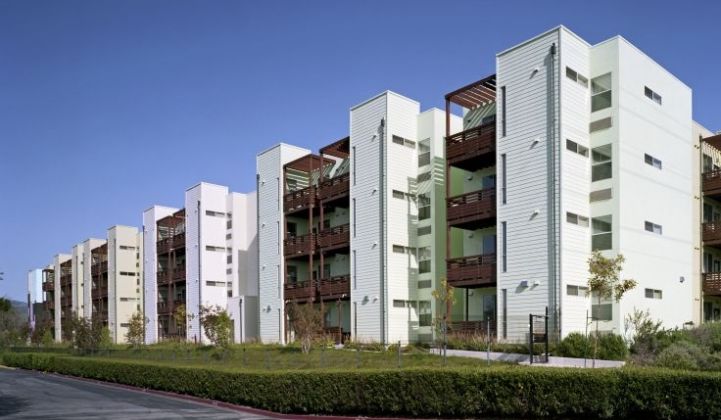WegoWise has joined forces with Elevate Energy and New Ecology to bring energy efficiency projects to low-income housing in seven states.
WegoWise, a leader in software for multifamily energy efficiency, will provide the data analytics, while New Ecology will provide consulting and Elevate Energy will act as the program implementer. Up to 1,850 buildings in Connecticut, Illinois, Maryland, Missouri, Pennsylvania, Rhode Island and Virginia will be able to receive financing for retrofits.
“The multifamily market still lags behind the rest of the market in implementing efficiency projects,” Ed Connelly, president of New Ecology, said in a statement. “This partnership solves that conundrum by packaging veteran expertise with advanced technology to deliver hands-on assistance that is affordable, easy to use, and proven to deliver impressive results.”
The entire multifamily housing market could save more than $3 billion per year if best-practice utility efficiency programs were implemented nationwide, according to a survey from the American Council for an Energy-Efficient Economy.
But for low-income housing, the challenge of investing in efficiency upgrades is even more complex than it is in the rest of the multifamily market. As with other rental agreements, there is the issue of split incentives, where tenants pay electric bills but owners make capital upgrades. Additionally, tenant comfort is not always top of mind for housing authorities the way it is in some market-rate apartments or office space.
“Multifamily building owners oftentimes do not have the financial or staff resources to tackle efficiency,” Anne Evens, CEO of Elevate Energy, said in a statement. “Many don’t understand the benefits, ranging from reduced utility expenses to increased tenant comfort and engagement -- and many don’t believe they’re worth the trouble.”
Yet, for housing authorities, which manage millions of square feet of space, there is a critical need to slash energy costs without spending a lot upfront for retrofits that have a long payback. WegoWise has already helped one housing authority in its home state of Massachusetts realize $500 million in lifetime savings.
For this new partnership, the focus is states that historically have not made multifamily efficiency a focus, said Dan Teague, director of business development at WegoWise. The funding comes from a series of grants from various energy and environmental organizations.
In each state, Elevate Energy and New Ecology will work with housing agencies to enroll properties. Once enrolled, the buildings will receive WegoWise’s software, which uses utility data and other available data to pinpoint which buildings would benefit the most from water and energy upgrades. Identified buildings will then get full audits. WegoWise anticipates that most of the retrofits will be upgrades to HVAC systems, lighting and insulation, as well as water conservation measures.
To really unlock the market, however, it will have to move beyond grants. As with the larger energy-efficiency market, there is also an emerging effort in the multifamily sector to ultimately make retrofits a market-based product, rather than one that relies on one-time grants and utility programs that have limited lifespans.
In California, there is a new pilot to bring property-assessed clean energy (PACE) financing to low-income housing and an effort to expand on-bill financing for multifamily units in the state.
The pilot is funded by a grant from the MacArthur Foundation, but the goal is to create project performance standards and manage finance risk perception to allow for self-sustaining investments for underserved affordable housing. If successful, the multifamily PACE and on-bill programs could be adopted in other states.



